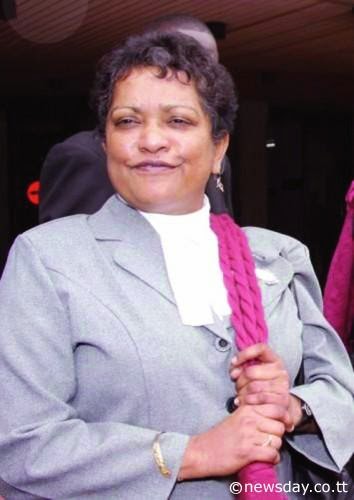Cost of Education In Barbados
We present and encourage progressive Caribbean views of Caribbean and world affairs.
by William Skinner
“Ladies and gentlemen, our
educational system has been a beacon in The Caribbean and the developing
world. However if we are to cope with the pressures for change
which lie ahead, the cost of educationwill be immense, if we are not to
be left behind. In order that we are on the right side of the divide,
the new requirements will necessitate that we restructure and find ways
to deliver relevant and high quality
by William Skinner
 |
| Dr. Marion Williams |
Education which meet the needs of
the 21st century without altering the basic social principles which have got us
this far.” Dr. Marion Williams formerGovernor of The Central Bank of Barbados, 14th Rudolph Goodridge MemorialLecture & Education Awards Ceremony Tuesday, December 7, 2004.
Those who support the abolition
of what we commonly refer to as our free education system , are quick to defend
their position by saying it is not really free because it is underwritten by
the taxpayers. At first this appears to be a strong defense of their position but
on closer examination, it is fatally flawed.
The whole concept of free
education really means that those who are pursuing the education do not have to
pay. In other words it is free at the point of delivery. It is based on the
principle that no one should be denied an education because they are unable to
pay.
If we endorse the position of those, who argue that we
already pay for it via taxation, it could then be countered that if it is no longer”
free” we would be paying for it twice: Once when we pay our taxes and when we have to pay the school fees. This also applies to all services we now enjoy
free of cost.
A person earning under 12000BDS. per
annum, having to pay fees for three children at any of our public institutions
of learning, would be bankrupt almost instantly. It also questionable if a
couple earning a joint income under 75000BDS per annum would be able to pay for
two children at any of our older grammar schools. Question: Do we really know
what a prestigious institution such as Harrison College/Queens College will
cost per term for one child? Conservative estimates are, as high as $4000BDS per
term. It is widely believed the newer
comprehensive schools could cost a minimum of 2700BDS. per term. It is
therefore not difficult to conclude, that those who are supporting the
abolition of free education are totally unaware of its cost. We can also speculate that a year at UWI,
depending on the field of study, could be at least 45000BDS. How many poor citizens can actually afford
such costs? Pray tell, which financial institution in Barbados, is going to
give unsecured loans to poor students to finance their education.
The question is: What percentage
of our population can meet such costs? I daresay a very low percentage, taking
into consideration, that many parents even with free bus fares and no school
fees still have great difficulty meeting the daily costs of sending their
children to school.
There should be a greater flow of
information regarding how the education budget is dispensed. The public should
know what it costs to educate each child from kindergarten to the University of
the West Indies. Perhaps if we had the information there would be a more
balanced approach to the debate.
The former Governor as quoted above
stated : “………..that we restructure and
find ways to deliver relevant and high quality education which meet the needs
of the 21st century without altering the basic social principles which have got
us this far.” She was absolutely correct. To implement changes without “altering basic
social principles which have got us this far” must be foremost in the minds and
planning of any serious/progressive government.
William Skinner is a commentator on Caribbean social, political and cultural issues.
Read Dr. Williams' speech at the link below:
http://www.centralbank.org.bb/Publications/speech_7dec2004.pdf
Read Dr. Williams' speech at the link below:
http://www.centralbank.org.bb/Publications/speech_7dec2004.pdf



Comments